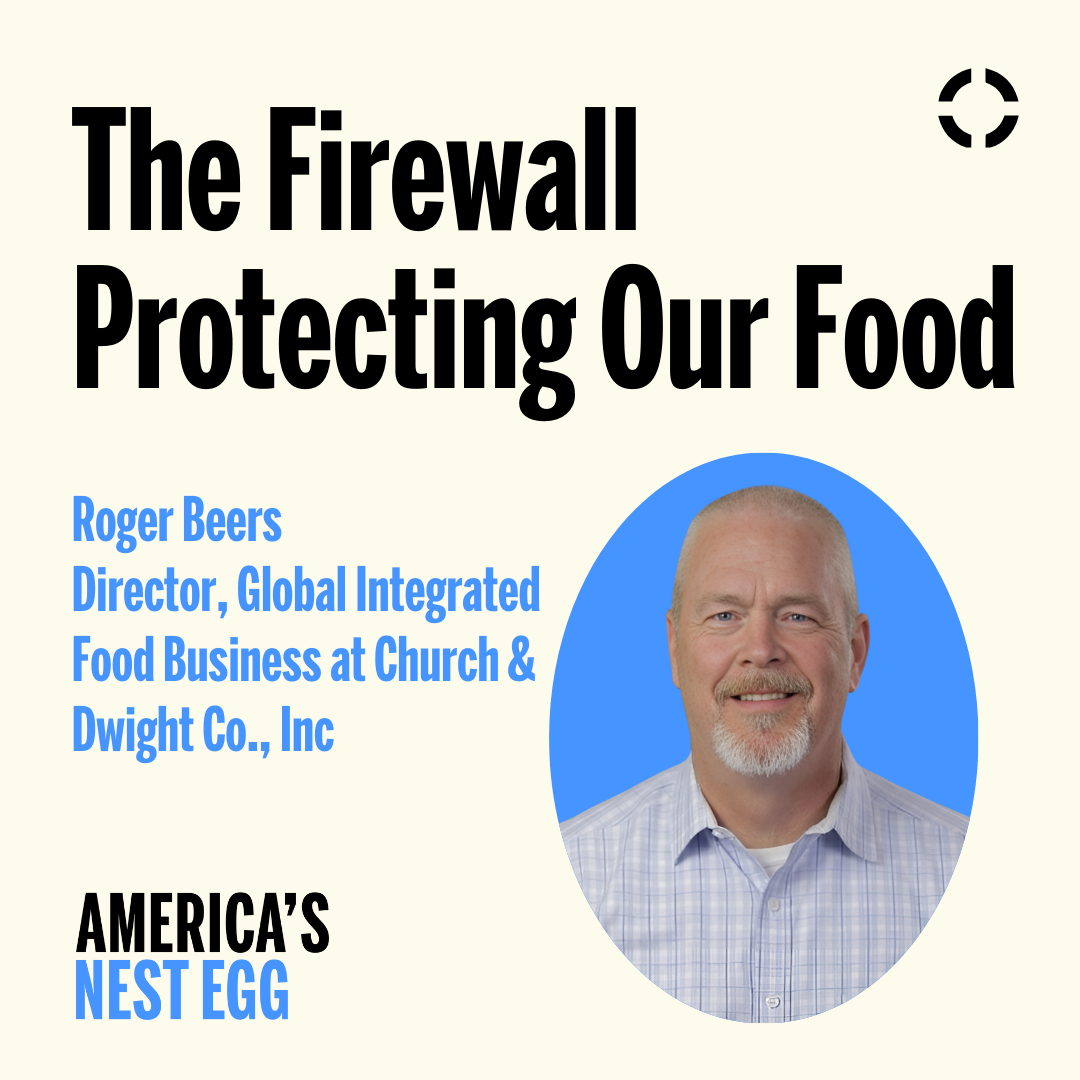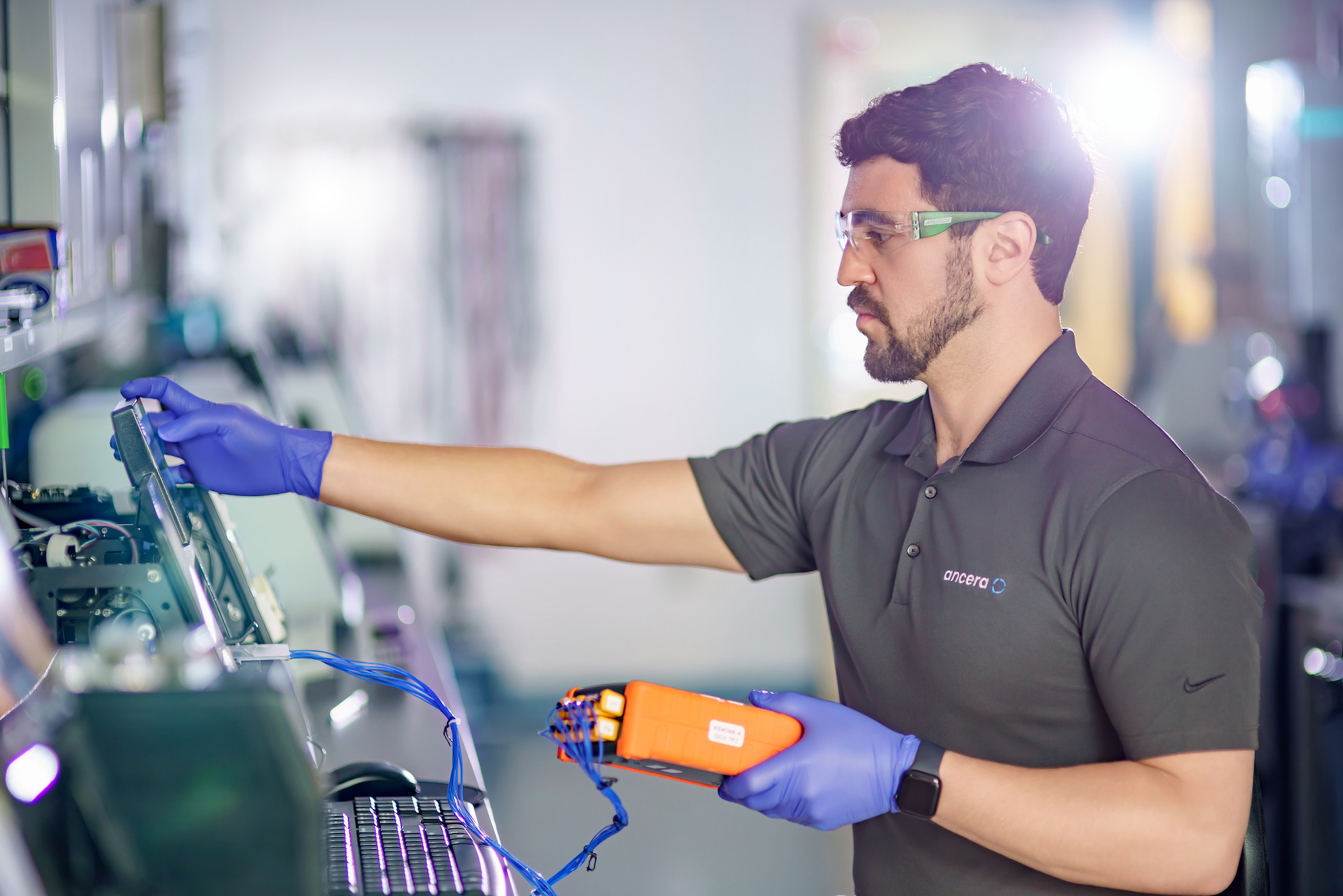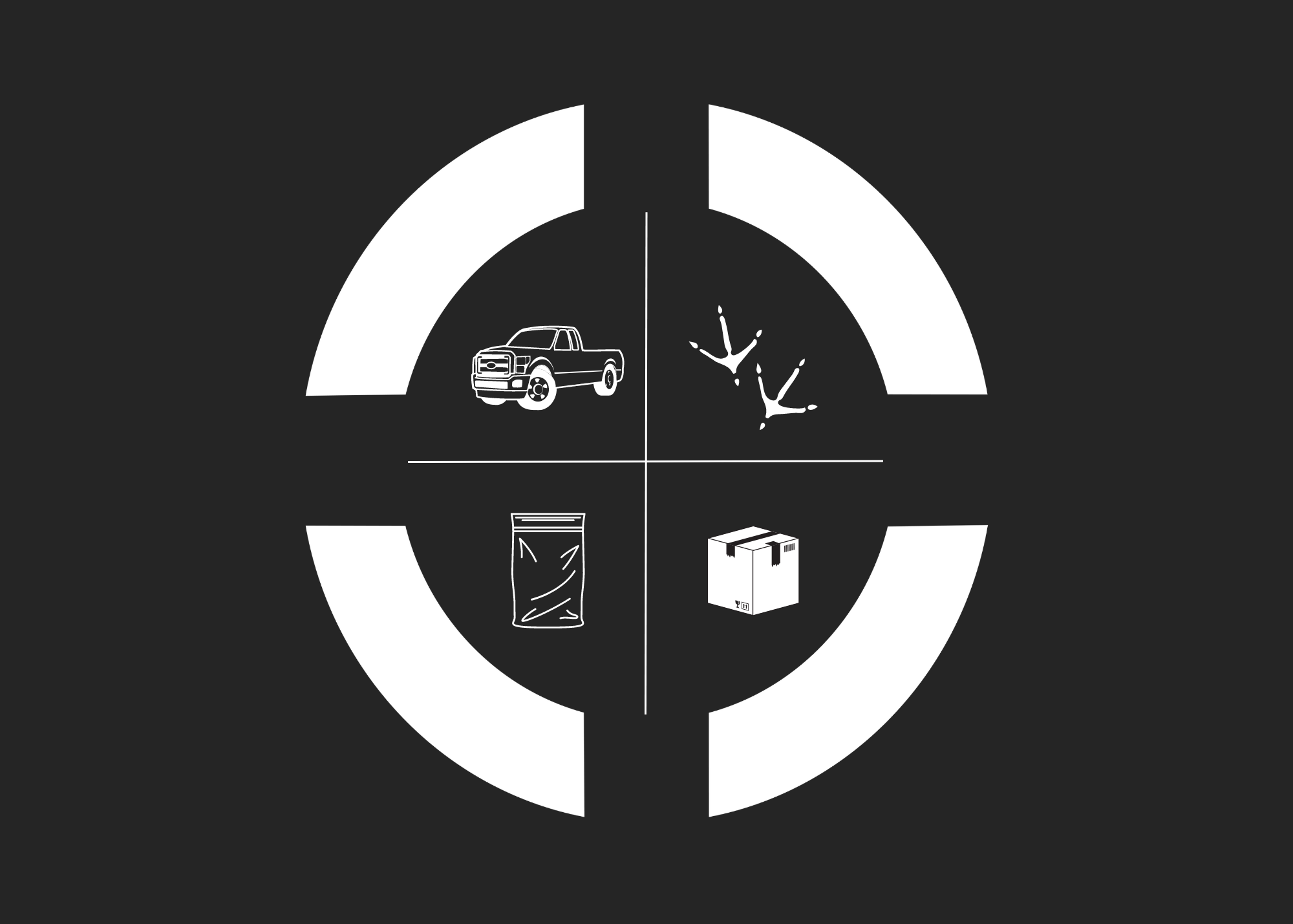In the poultry industry, margins are razor-thin, and every penny spent needs to pull its weight. For too long, poultry companies have leaned on diagnostics and contract labs as a crutch, ticking compliance boxes and relying on gut instinct to make important decisions. But outdated tools and guesswork does not make for a reliable strategy, and more tests aren’t the answer.

Publication
Sustainability Meets Practicality at Shake Shack and Neutral
On this episode of America’s Nest Egg, host and Ancera CEO Arjun Ganesan talks with Corey Blumenthal and Lauren Brown about sustainability in the food industry.
Corey Blumenthal is a sustainability specialist at Shake Shack, the fast casual restaurant that serves elevated versions of the classics like burgers, fries, and milkshakes. She completed her Master’s in Energy and Sustainability at Northwestern with a focus on sustainable food systems and in her role at Shake Shack, she works across several departments from marketing to development to help promote and manage the company’s sustainability efforts.
Lauren Brown is the senior program manager for carbon reduction data and analytics at Neutral, the world’s first carbon-neutral food company. She completed her Master’s in Earth Systems from Stanford. Working on the carbon reduction team at Neutral, Brown focuses on the biggest areas of impact including dairy and beef, analyzing the carbon footprint and emissions to see where the biggest impact is coming from. Neutral uses this modeling and measurement to assess the viability of farm projects to reduce emissions.
How Shake Shack and Neutral formed a partnership
In 2023, Shake Shack partnered with Neutral to source carbon free milk, which is now available in 90 locations throughout the United States.
In the world of sustainability, professionals regularly join panels, read books and articles, and keep up with evolving trends. While attending a conference, Blumenthal came across a member of Neutral and immediately saw the connection.
“I said, ‘wow, we should start the conversation.’ And we began conversations with Lauren's team and we had started in our Northwest locations, but have been able to expand to our East Coast locations,” Blumenthal said.
The changing landscape of regenerative agriculture
The COVID-19 pandemic exposed the fragility of our food systems, highlighting the need for more resilient agricultural practices.
"Looking at our food system now, it's really fragile. We saw that firsthand during the COVID-19 pandemic. Supply chains were completely disrupted, and our soil health is diminishing," Blumenthal said.
Despite this challenge, Shake Shack saw an opportunity for regenerative agriculture to play a role in mitigating these issues. "Regenerative agriculture, I’m not saying it’s a catch-all for all of these problems, but it definitely helps address some of these problems," Blumenthal said.
At Shake Shack, their commitment to regenerative practices is evident. "We are investing, we purchase meat from regenerative farmers, our French fries come from regenerative farmers, our dairy milk comes from farmers who are using regenerative practices, and I think that that's going to become even bigger and more important in the sustainability space in the coming months," Blumenthal said.
Brown echoes that enthusiasm. "There's a big push to demonstrate that we have tools and mechanisms of really making an impact in sustainable agriculture right now. That's everything from feed supplements to reducing enteric methane in cows to how we plant crops that feed animals or go directly to our food supply chain now," she said.
From feed supplements that reduce methane emissions in livestock to advanced crop planting techniques, these interventions offer a way to enhance biodiversity, improve water quality, and reduce greenhouse gas emissions. "Producers are open to it, so we're kind of at this inflection point of really making an impact in this area,” Brown said.
The fragility of our food supply
How fragile is our food supply in an era where extreme weather events, from droughts to monsoons, can disrupt the availability and cost of essential ingredients?
"When you think about fragile supply chains, I'm thinking through here at Shake Shack, we put lettuce on some of our burgers. With extreme and volatile weather conditions, the supply of lettuce gets disrupted. It becomes harder to get quality lettuce consistently, it becomes more expensive to get quality lettuce consistently," Blumenthal said.
A regenerative approach at Shake Shack is essential for keeping their everyday operations running smoothly. "We're seeing extreme weather patterns all across the East Coast right now... It doesn't just have impacts like the weather, your day-to-day activity, but it does impact the crops that we grow and the availability and how restaurants and grocery stores are sourcing."
The intersection of sustainability and productivity is the proverbial sweet spot. Brown also emphasizes the benefits of regenerative methods.
“I like the idea of these interventions addressing both the mitigation and the adaptation to climate change. So, not only are we reducing emissions from some of these practices, but like Corey said, we're also building resiliency into these systems that allow us to respond more dynamically to volatile weather.” Brown said. “Being able to address both of those at the same time is not only good for us as a consumer, it's healthy for the producer, it's healthy for the land. These are all avenues of which I think we need to be addressing.”
Measuring methane emissions
The conversation about sustainable agriculture often zeroes in on implementing and measuring environmentally friendly practices. Brown and Blumenthal discuss the methodologies for methane emission measurement and the broader discussion on incentives for adopting sustainable practices.
Brown outlines the multifaceted approach Neutral takes to quantifying methane emissions. "When we’re talking about our Agilent project, for example, it's a relatively well studied heat supplement, and for following protocols that exist for realizing that reduction in a similar way as you would realize a carbon offset. We use meta analysis of studies that show here's the reduction and we calculate the baseline emissions based on how much you're feeding the cow, the types of cows that you're using, that sort of thing," she said.
Food companies face the challenge of incentivizing sustainable practices in agriculture. Practice versus performance-based incentives center on whether to compensate farmers for the adoption of specific practices or for the actual environmental outcomes of those practices.
Practice-based incentives can foster the adoption of new technologies and methods, providing a predictable support framework for farmers. Conversely, performance-based incentives can drive efficiency and innovation by directly rewarding the environmental outcomes of farming practices.
A combination of both strategies may offer the most effective way forward. By incentivizing the adoption of sustainable practices while also rewarding measurable improvements in environmental performance, the industry can accelerate its transition towards a more sustainable and productive future.
A multifaceted approach to sustainability
The relationship between agricultural practices and microbial activity involves the critical role of methanogens, a significant concern in sustainable in dairy farming.
Brown and Neutral are focused on the biological underpinnings of methane production in cattle. "Cattle have four stomachs. In the ruminant, there is methanogens that produce methane from, they're also feeding off of the food that the cow is consuming. So a lot of these strategies for changing how the cattle processes food is adjusting those methanogens," she said.
This microbial process is a major source of greenhouse gas emissions from dairy and beef production. The focus on altering the diet of cattle to adjust methanogen activity is one of the most direct paths to reducing methane emissions.
Blumenthal and Shake Shack are interested in exploring the wider implications of microbial activity and how it extends to food safety, shelf life, and broader sustainability issues. While methanogens are a focal point due to their role in methane production, countless other microbes play pivotal roles across the food supply chain. The management of these microbial communities can have far-reaching impacts on food quality, safety, and environmental sustainability.
On the farm: Precision and purpose in data collection
Precision in data collection at the farm level is not easy. Brown says the team at Neutral is focusing on gathering essential data that directly informs lifecycle assessments and emission reduction strategies. This approach balances precision with the practical realities of farming operations.
“On the farm level, when we start with projects, we are very clear about what types of data we need to collect. And there are a lot of approaches out there that I think are collecting, not just the 'need to have,' but that ‘would be nice to have’ data, which can reduce the interest in the farmer, because it increases the burden of data requirements," Brown said.
Neutral works to anticipate the downstream effects of products, considering different consumption patterns and waste scenarios. "We’re trying to find this fine line of ‘What do we need to really collect from the data to be sure about the reductions that are happening on farm?’ That's really tied into our life cycle assessment and our footprint, which shows us how much emissions are coming from each of these sources," Brown said.
A critical aspect of data sharing involves certifications and partnerships that validate and communicate sustainability achievements. Brown mentions the carbon neutral certification process as a key mechanism for sharing validated data with partners like Shake Shack
"When we go through a carbon neutral certification process, we essentially say, ‘Here's our footprint on an annual basis. Here's what we were able to reduce through our on-farm projects, what we weren't able to reduce," she said.
Neutral’s carbon credits process
Neutral's approach to carbon offsets emphasizes investments in projects that directly impact agricultural emissions. The broader vision is one where Neutral might not only manage its own emissions, but also contribute to the wider carbon offset market by developing projects that benefit others.
“We typically purchase all of our credits through Climate Action Reserve,” Brown said. “We typically support projects that are happening on farms. So that's things like dairy digesters that are not the right fit for our smaller farms but are a great option for reducing emissions on larger farms.”
On a path toward collaborative climate action, Brown and Blumenthal recognize that reductions in one area can ripple through multiple supply chains. This shared understanding between Neutral and Shake Shack shows how companies can work together to reduce emissions.
The business sense of sustainability
Sustainability and profitability are not mutually exclusive, but mutually reinforcing. By investing in energy efficiency and sustainable practices, Blumenthal says that businesses can reduce costs and boost their bottom line.
"Sustainability is just good business."
Shake Shack and Neutral advocate for making sustainable products the default choice, relieving consumers of the burden of having to choose between sustainability and their preferences.
As the two companies continue to bridge the gap between consumer perceptions and the realities of sustainability, both stress the importance of clear, accessible communication that educates consumers about the sustainability efforts behind the products they purchase.
By demystifying sustainability and demonstrating its alignment with good business practices, companies can foster a deeper understanding and appreciation among consumers for environmentally responsible choices.
America’s Nest Egg
The America’s Nest Egg podcast hosts conversations on the poultry industry, biotech, and more. Listen to the full episode with Corey Blumenthal and Lauren Brown.
Subscribe to America’s Nest Egg and join the conversation.










.png)






























